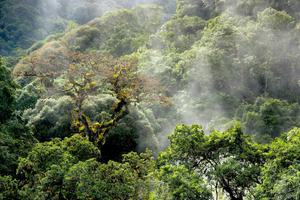Forest fires burn part of the Amazon in Candeiras do Jamari, Rondonia, Brazil in August 2019. Victor Moriyama / Greenpeace
The rate of deforestation in the Brazilian Amazon has reached its highest level in 11 years, according to new satellite data. About 3,769 square miles of rainforest were lost between August 2018 and July 2019, the result of agricultural land clearing, wildfires, mining, and logging, according to Brazil’s National Institute for Space Research (INPE).
The numbers represent a nearly 30 percent increase in deforestation over the previous 12-month period, CNN reported. It is equal to losing about two football fields of forest per minute, according to The Guardian, the fastest since 2008.
Brazilian President Jair Bolsonaro has been a staunch supporter of agribusiness, mining, and timber development in the Amazon since taking office in January. Enforcement actions against industry operating in the Amazon have dropped by 20 percent under his administration, the New York Times reported, and Bolsonaro fired the head of the INPE in August for expressing concern about the rise in deforestation. Countries like Norway have suspended international donations to Brazil to protest the administration’s pro-industry policies in the rainforest.
Brazilian environment minister Ricardo Sales noted at a press conference that the level of deforestation is not as high as some scientists expected. “It’s far from the three-digit numbers that had been reported” in monthly satellite analyses, he said.
But environmental groups said the rate is still unacceptable, and will make it nearly impossible for Brazil to meet its national targets under the Paris Agreement to limit annual deforestation to 1,500 square miles by 2020.
“The number released today is a direct consequence of Bolsonaro’s ‘chainsaw’ strategy, which consists in dismantling enforcement agencies, shelving deforestation control plans and empowering, through his speeches, environmental criminals,” the Climate Observatory, a Brazilian network of environmental advocacy organizations, wrote in a press release.



